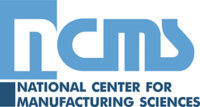February 11, 2025
NCMS is assisting the Department of Defense in seeking industry partners who have the capability to provide mixed-reality headsets that can deliver remote, real-time support for USMC warfighters, providing them with a reliable and efficient means of receiving tele-maintenance support from technical experts.
Background
Marine Depot Maintenance Command (MDMC) seeks to enhance maintenance capabilities by leveraging advanced technologies, such as mixed-reality (MR) devices like Microsoft HoloLens 2, to provide remote, real-time support to warfighters in the field.
Traditional maintenance methods, which rely on in-person diagnostics and repairs, often result in extended downtime, travel expenses, higher costs, and logistical challenges, particularly in remote or contested environments. To address these limitations, MDMC aims to deploy a “See what I see” tele-maintenance solution that enables technical experts to remotely guide warfighters through complex repairs and maintenance tasks, using holographic 3D live video streams and cloud-based software to deliver critical, timely data, thereby increasing the warfighter’s ability to diagnose and conduct field-level repairs and reducing the need for on-site expertise or equipment transportation.
Objectives
The intent of this effort is to implement mixed-reality headsets and software within the MDMC. Compliance with USMC cybersecurity policies and procedures is a must. Key tasks and deliverables for this effort are:
MR Headset: The contractor shall provide mixed-reality headsets that meet the following specifications:
- Display resolution: 1832 x 1920 per eye
- Field of view: 100 degrees horizontal
- Tracking system: Inside-out tracking with 6 degrees of freedom
- Controllers: Hand tracking with gesture recognition
- Audio: Spatial audio with 3D sound
- Connectivity: Wi-Fi, Bluetooth, and USB-C
Software: The contractor shall provide software that meets the following requirements:
- A software license for the MR headsets, including all necessary updates and maintenance for a period of 2 years.
- Compatible with MDMC’s existing infrastructure and systems
- Ability to connect with production plant experts via video conferencing
- Real-time guidance and annotation tools
Security: The contractor shall ensure that the MR headset and software meet the following security requirements:
- Compliance with USMC’s cybersecurity policies and procedures
- Encryption of data transmission and storage
- Secure authentication and access controls
- Current Authority to Operate on the Marine Corps Enterprise Network (if available)
- If not available, then headset must at least adhere to the following NIST standards:
- NIST SP 800-171
- NIST SP 800-53
- NIST SP 800-63-3
- NIST IR 8294
- If not available, then headset must at least adhere to the following NIST standards:
Training and Support: The contractor shall provide on-site training and support to MDMC personnel on the use and maintenance of the MR headset and software, user manuals, technical guides, and training materials for the MR headset and software.
Submission Requirements
Interested parties should provide a White Paper response with NO MORE than FOUR (4) pages, not including a cover page, using the format below.
The White Paper must:
- Describe general approach for demonstrating, testing and evaluating the technology solution, to include phases to accomplish the objective
- Describe assumptions
- Detailed approach to the objective
- List of tasks
- List of deliverables
- High level project schedule and timing
- Describe rough order of magnitude cost
- A more detailed cost analysis will be expected later in the process
Deadline
Responses are due to opportunities@ncms.org by COB 7 March 2025.
Disclaimer and Other Legal Information
NCMS encourages the participation of Disadvantaged Business Enterprises (DBEs), including Minority Business Enterprises (MBEs) and Women’s Business Enterprises (WBEs).
Responding to a Sources Sought, RFI, or Survey does not guarantee that a CTMA Program initiative will result. By submitting a response, you are agreeing to allow NCMS to share your information with the United States government. All submissions containing proprietary information shall be marked accordingly.
Any industry or academia participant awarded a contract by a participating government sponsor pursuant to a Sources Sought, RFI, or Survey will be compensated, under the agreement, on a cost-reimbursable basis. Each project participant will be expected to share in the total project cost by contributing cash or in-kind resources.
Under the CTMA Program, the parties shall limit participation on the project to (1) U.S. citizens, (2) lawful permanent residents as defined by 8 U.S.C. 1101(a)(20), (3) other protected individuals as defined by 8 U.S.C. 1324b(a)(3), and (4) Canadian citizens (pursuant to the principles underlying the Canada-U.S. Free Trade Agreement), if such participation will involve visual inspection of the Technology, Intellectual Property or Technical Information, or oral exchanges of information about the foregoing. We also require the project participants to furnish NCMS, upon request, with proof of the citizenship status of its personnel participating on the project, including (1) U.S. citizens; (2) legal permanent residents; and (3) foreign nationals who are not permanent residents. In instances where it is necessary to involve foreign national employees in the visual inspection of the Technology, Intellectual Property, or Technical Information, or oral exchanges of information about the foregoing, the parties will be required to furnish to NCMS proof of appropriate valid export license, or technical assistance agreement, or exemption from licensing requirements (e.g. Canadian exemption) to the extent required by the International Traffic In Arms Regulations (“ITAR”) or the Export Administration Regulations (“EAR”). A copy of such license or agreement shall be furnished to NCMS before any disclosure of information to such foreign person. In the event a party believes that the subject matter of the project agreement is not covered by ITAR, that party may request a written waiver of the requirements of foreign national provision in the CTMA Agreement, which may be granted if the NCMS contracting officer agrees that ITAR does not cover the subject matter.
These requirements also apply to individuals who have dual citizenship status.




